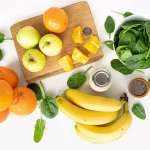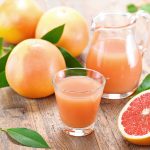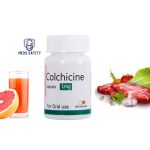Full List Of Foods to Avoid While Taking Hydrochlorothiazide

Food-drug interactions occur when the consumption of certain foods or beverages affects the way medications are absorbed, metabolized, or utilized by the body. These interactions can influence the medication’s effectiveness and potentially lead to unwanted side effects or reduced therapeutic benefits. Understanding food-drug interactions is crucial for both patients and healthcare providers to ensure that medications work optimally and deliver the desired health outcomes.
These interactions can occur in several ways, such as altering the rate at which a medication is absorbed into the bloodstream or affecting its distribution within the body. Some foods can also interact with enzymes responsible for drug metabolism, potentially changing the way the body processes medications. As a result, it’s important to consider the timing of medication administration in relation to meals, as well as the potential impact of specific foods on drug actions. Maintaining open communication with healthcare providers and following their recommendations regarding medication administration and dietary restrictions is essential to mitigate food-drug interactions and ensure the safe and effective use of medications.
Hydrochlorothiazide is a widely prescribed medication for managing high blood pressure, edema, and certain kidney conditions. It is a diuretic that helps the body eliminate excess sodium and water to reduce blood pressure. While hydrochlorothiazide can be highly effective, it interacts with certain foods and can lead to adverse effects. In this comprehensive guide, we will explore the foods you should avoid or consume in moderation when taking hydrochlorothiazide.
How Hydrochlorothiazide works
Hydrochlorothiazide works by increasing urine production, which helps the body remove excess sodium and water. This process can also lead to a loss of important electrolytes, primarily potassium. Therefore, it’s essential to maintain a balanced diet and be aware of foods that can either enhance or hinder the effectiveness of the medication.
Foods to Avoid or Consume Sparingly
While taking hydrochlorothiazide avoid or limit the consumption of the following foods:
1. High-Sodium Foods: Hydrochlorothiazide’s primary function is to help the body eliminate excess sodium and water, reducing blood pressure. Consuming high-sodium foods can counteract this medication’s effects. Processed foods, including canned soups, frozen dinners, and fast food, are notorious for their high sodium content. To ensure the effectiveness of hydrochlorothiazide, it is crucial to reduce your sodium intake. Opt for fresh, whole foods and cook at home whenever possible to control your salt intake.
2. Licorice: Licorice is known for its distinctive flavor, but when consumed in large amounts, it can have adverse effects while taking hydrochlorothiazide. Excessive licorice intake can lead to low potassium levels in the body, which may worsen the medication’s diuretic effects. To avoid this interaction, it’s recommended to consume licorice sparingly and consult your healthcare provider if you have concerns about your potassium levels.
3. High-Potassium Foods: While hydrochlorothiazide can cause potassium loss, consuming too much potassium can be equally problematic. Foods like bananas, oranges, and potatoes are rich in potassium, and overindulgence can lead to imbalances. To maintain the right potassium levels in your body, be mindful of your potassium intake. It’s advisable to consult your healthcare provider to determine the appropriate potassium levels for your individual health.
4. Alcohol: Alcohol can interact with hydrochlorothiazide, intensifying its diuretic effect. This interaction can lead to increased urination, which in turn raises the risk of dehydration and low blood pressure. While occasional and moderate alcohol consumption may be acceptable for some individuals, it’s generally wise to limit alcohol intake while taking this medication. Consult your healthcare provider for personalized guidance on alcohol use.
5. Grapefruit and Grapefruit Juice: Grapefruit and its juice contain compounds that can interfere with the absorption and effectiveness of various medications, including hydrochlorothiazide. To ensure that your medication works as intended, it’s advisable to avoid grapefruit and grapefruit products entirely. Substituting with other fruits or juices is a safer choice for individuals on hydrochlorothiazide.
6. High-Sugar Foods: High-sugar foods, particularly those containing added sugars, can contribute to weight gain and high blood pressure, which may counteract the benefits of hydrochlorothiazide. Consuming excessive sugar can lead to insulin resistance and increased blood pressure. Therefore, it is recommended to reduce sugar intake, choose healthier alternatives, and read food labels to identify hidden sugars.
7. High-Oxalate Foods: While taking hydrochlorothiazide, some individuals may be at risk of developing kidney stones due to the medication’s diuretic effect. High-oxalate foods, such as spinach, beets, and sweet potatoes, can increase the risk of kidney stone formation. To minimize this risk, it’s advisable to consume these high-oxalate foods in moderation and ensure adequate hydration.
8. Coffee and Caffeinated Beverages: Caffeine is a natural diuretic, meaning it promotes urine production. When combined with hydrochlorothiazide, which also increases urination, excessive caffeine consumption can lead to more frequent trips to the bathroom. While moderate coffee consumption is generally acceptable for most individuals, it’s essential to avoid excessive caffeine intake. Staying hydrated is important, so be mindful of your fluid balance when consuming caffeinated beverages.
9. Salt Substitutes: Some people turn to salt substitutes as an alternative to sodium for seasoning their food. However, many salt substitutes are made with potassium chloride, which can affect your potassium levels. Since hydrochlorothiazide can already cause potassium loss, it’s crucial to consult your healthcare provider before using salt substitutes. They can provide guidance on whether these substitutes are safe for you or if you should consider alternative seasoning options.
10. High-Fat Dairy Products: High-fat dairy products, such as full-fat milk, cheese, and butter, can contribute to weight gain and may have a negative impact on blood pressure. For individuals taking hydrochlorothiazide, it’s advisable to opt for low-fat or fat-free alternatives when consuming dairy products. These choices can help you manage your weight and maintain better blood pressure control.
Conclusion
Maintaining a healthy diet is essential while taking hydrochlorothiazide to ensure the medication’s effectiveness and reduce the risk of side effects. Be mindful of your sodium and potassium intake, avoid or limit foods that can interact negatively with the medication, and consult your healthcare provider for personalized dietary recommendations. A balanced diet, along with proper medication management, can help you manage your blood pressure and related conditions more effectively.





